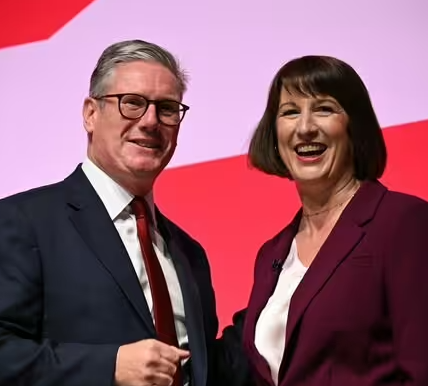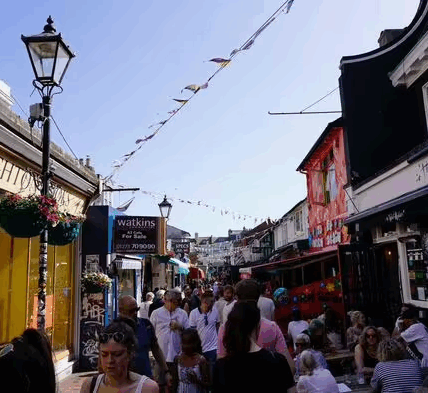If you thought Ed Miliband’s interviews were as bad as it got then strap yourself in.

Ed Miliband (Image: Getty)
How utterly bonkers has the UK Government become? They’re about to throw £50 million of taxpayers’ money at experiments to dim the Sun — yes, you read that right — to fight climate change. Meanwhile, they’re simultaneously blanketing Britain’s precious green fields with sprawling solar farms that greedily soak up every ray of that same sunlight. It’s a staggering contradiction that would be laughable if it weren’t so reckless and damaging.
This isn’t the first time so-called “experts” have cooked up wild geoengineering schemes. In the 1970s, they planned to cover the Arctic with soot to melt sea ice and avoid the feared Ice Age? That “brilliant” idea only worsened pollution and environmental damage. Now, the government’s Advanced Research and Invention Agency (ARIA) is gearing up to spray aerosols into the stratosphere and brighten clouds with sea salt particles — all to reflect sunlight away from Earth and cool the planet temporarily.
But how will they measure success? No one knows. Instead of this costly gamble, wouldn’t a proper cost-benefit analysis of the UK’s Net Zero policies be a better use of a lazy £50 million? That’s right — we’re spending millions on uncertain “solar geoengineering” experiments while ignoring the hard questions about whether our entire green energy strategy makes economic or environmental sense.
And here’s the kicker: clouds themselves play a vital natural role in balancing global energy. Different altitude clouds have opposite effects on warming and cooling, a complexity the IPCC largely ignores because it’s “too complex”. So how can spraying sea salt to brighten clouds be a silver bullet? It’s scientific hubris at its worst.
Meanwhile, solar farms are sprawling across fertile farmland, threatening food production and destroying habitats. The Duke of Northumberland’s estate near Newcastle, once a critic of landowners “seduced by easy money,” now proposes a massive 34-hectare solar farm on green belt fields. This hypocrisy is everywhere.
Local residents warn these solar arrays bring “industrial-esque” blight, irreversibly scarring the rural landscape. Yet the government pushes renewables expansion without protecting the countryside. Many farmers admit solar panels provide vital income, but the government refuses to promote agrivoltaics — a technology that lets crops and solar panels coexist, potentially meeting the UK’s solar needs four times over without destroying farmland.
And what about energy security? Despite the hype, Britain still depends heavily on oil, gas (which should include fracking), and nuclear power. Wind and solar are intermittent and unreliable — now even more so with the government trying to dim the Sun itself. Energy Secretary Ed Miliband admits gas generation will be needed well into the 2030s to keep the lights on.
The government’s own plans acknowledge that relying solely on wind and solar is fantasy. So why keep pretending renewables are the answer? In fact, I don’t even agree there’s much of a place for renewables in a “robust fossil fuel energy mix.” Maybe we should admit the truth: wind and solar only make sense in niche spots — remote ocean lighthouses or satellites in space — not sprawling across our countryside or as a backbone of national energy.
And then there’s the postcode lottery madness. The government is considering charging households in southern England more for electricity than those in Scotland or the North. The only postcode lottery that makes sense is cheap or free energy for people living near fracking sites as a “thank you” for hosting the infrastructure that actually keeps the lights on. Instead, this policy deepens regional inequality while families struggle with sky-high bills.
READ MORE…
Royal who was involved in a plot – and she looks exactly like Zara Tindall
Rarely seen royal worth more than Princess Kate, Anne and Edward combined
Conclave plot, cast and where to watch hit political thriller at home
Speaking of fracking, it’s been demonised unfairly. A 2014 industry report predicted shale gas could create tens of thousands of jobs and reduce imports, potentially meeting a third of UK gas demand with a tiny surface footprint. Yet political fear and misinformation have stalled development. If the government truly cared about energy security and affordability, fracking would be part of the solution, alongside responsibly managed North Sea oil and gas, and nuclear power.
And what about the global nature of climate change? Climate cultists claim it’s a worldwide problem, so why is the UK conducting these geoengineering experiments under our famously grey skies? Have other nations refused to join in? The public deserves to be told. This isn’t just a local experiment — it’s a gamble with global consequences, yet transparency is sorely lacking.
Let’s not forget history’s lessons. In the late 1800s and early 1900s, industrial pollution darkened the Arctic with soot and sulfate, accelerating warming and damaging fragile ice. The 1970s soot plan to melt Arctic ice was a disaster waiting to happen. Are we really ready to repeat such reckless mistakes on a global scale with geoengineering?
In short, the UK government is caught in a dangerous doublethink: spending millions to reduce sunlight reaching Earth while covering farmland with solar panels that desperately need sunlight. It’s like trying to fill a bucket with water while poking holes in it — absurd, hypocritical, and reckless.
Enough of this madness. Instead of chasing wild geoengineering fantasies and sprawling solar farms that devastate farmland, the government must get serious. Invest in nuclear power. Exploit North Sea oil and gas responsibly, including fracking where safe. Develop hydrogen. Stop pretending renewables are the silver bullet.
Dimming the Sun while expanding solar farms is not just hypocrisy — it’s a reckless distraction from securing Britain’s energy future. It’s time for atheistic Sir Keir Starmer to stop playing God, end the postcode lottery madness, and deliver an energy strategy that works — for the countryside, for consumers, and for the country.
No one is laughing anymore. The joke’s over. It’s time to end the madness.




Most Popular Comments